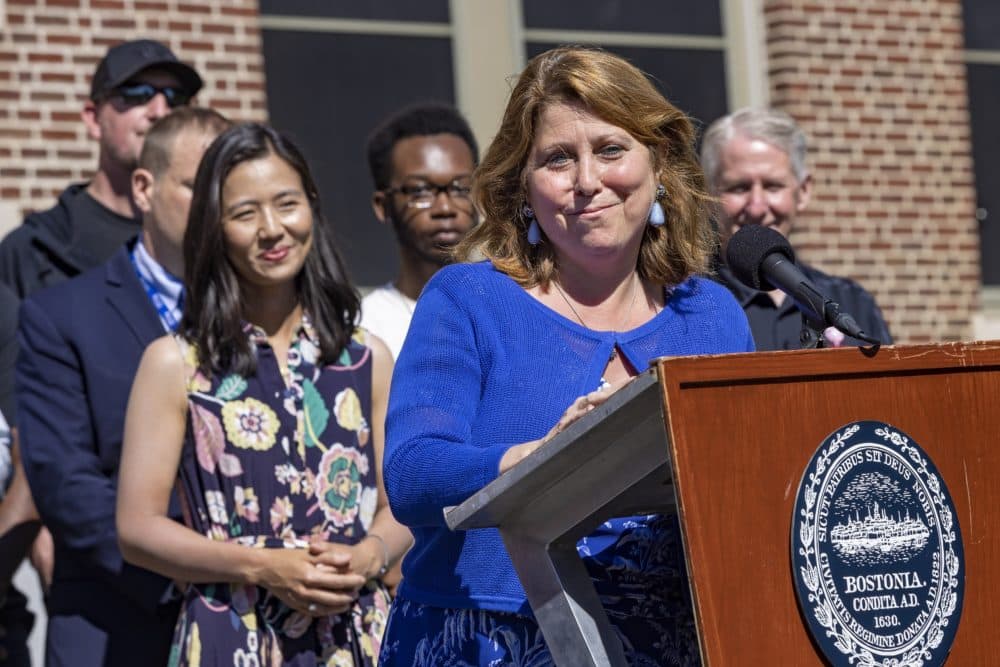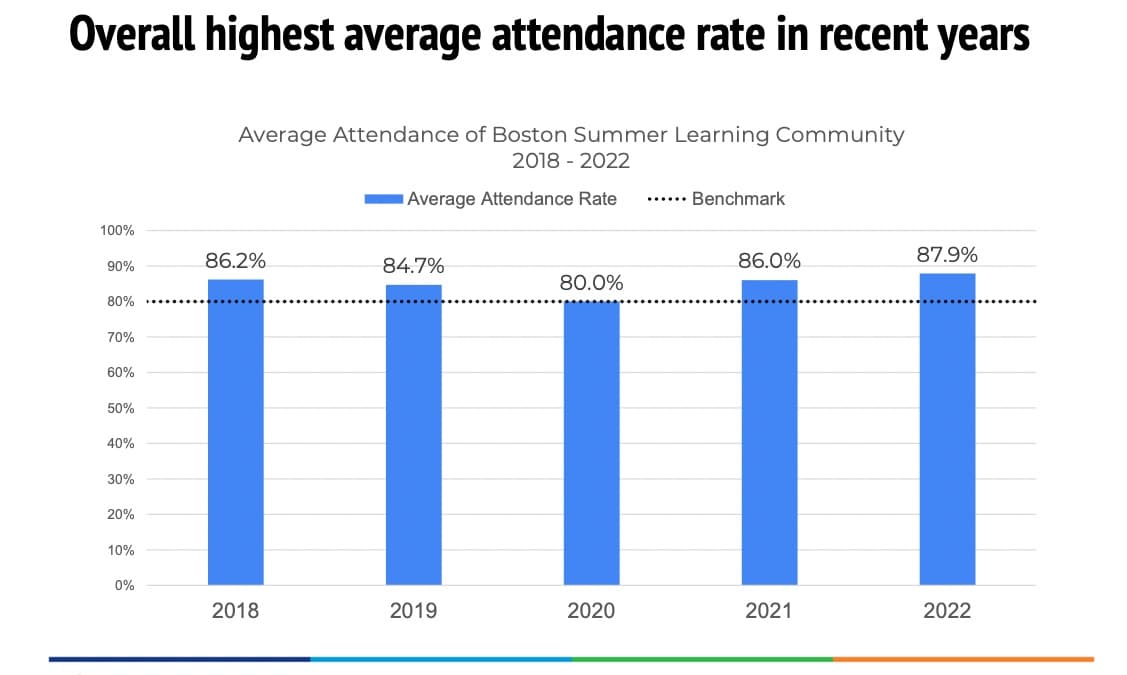Advertisement
Boston's investment in summer learning converts into high participation this year

State and local education officials in Massachusetts are betting big on summer learning. Given the pandemic’s alarming academic and emotional effects on students, they argue, the school year can’t stop in June.
And this past summer in Boston reflected that effort. The state's largest school district invested $4 million in their programs, matched with $900,000 from the state and over half a million dollars from private philanthropy.
As a result, a record-high 15,851 city students were hosted by over 200 schools and community groups, including unorthodox “classrooms” from the Blue Hills Reservation in Canton to the waters off of Charlestown Navy Yard, according to a new report from the district's nonprofit partner, Boston After School & Beyond.
Participants showed their enthusiasm with record-high attendance. Boston's summer learning programs recorded an average attendance rate of nearly 88% — just below the city’s in-school attendance rate during the 2021-22 school year.

Both the city's and state’s investments this year were aimed at learning loss, and both drew on short-term relief dollars from the federal government. Boston After School & Beyond's report shows that at least a third of participants struggled to feel optimistic, assert themselves or take an interest in learning — nearly twice the number from 2019.
That social-emotional setback — along with “chronic absenteeism” and learning loss — is part of COVID’s legacy among young people, Mary Skipper, new superintendent of Boston Public Schools, said during a Thursday presentation of the findings.
While she acknowledged those harms will take years to correct, Skipper said that makes successful summer learning — that is fun but challenging, communal and constructive, and well-attended — all the more important.
"I'm thrilled to see the record-high attendance," she said. "Knowing that our students came to the programs and were fully engaged — that's a critical indicator of success."
The city’s “5th Quarter” programming is run by a network of community groups, city services and nonprofits, and includes enrichment experiences and pre-kindergarten programs along with the “credit recovery” of traditional summer school.
Though of late the programs have drawn on temporary federal aid, there’s no reason yet to expect backsliding next summer. Jim Peyser, the state’s secretary of education, announced Thursday an even larger $1 million grant for the program next year.
Peyser pointed to the low MCAS scores released late last month — particularly the fact that nearly 30% fewer Black and Latino students passed the test — as one reason for sustained support for summer learning.
“The challenge is great,” Peyser said. “We can’t make up for lost instructional time all at once. The only way we’ll get there is to expand the time they have to learn during the year — the whole year.”
Nearly a third of the programs’ students this summer identified as Black, and another quarter were Latino.
Skipper noted that she’s “already fast-forwarding and thinking about” next summer, which she said will be here before we know it.
